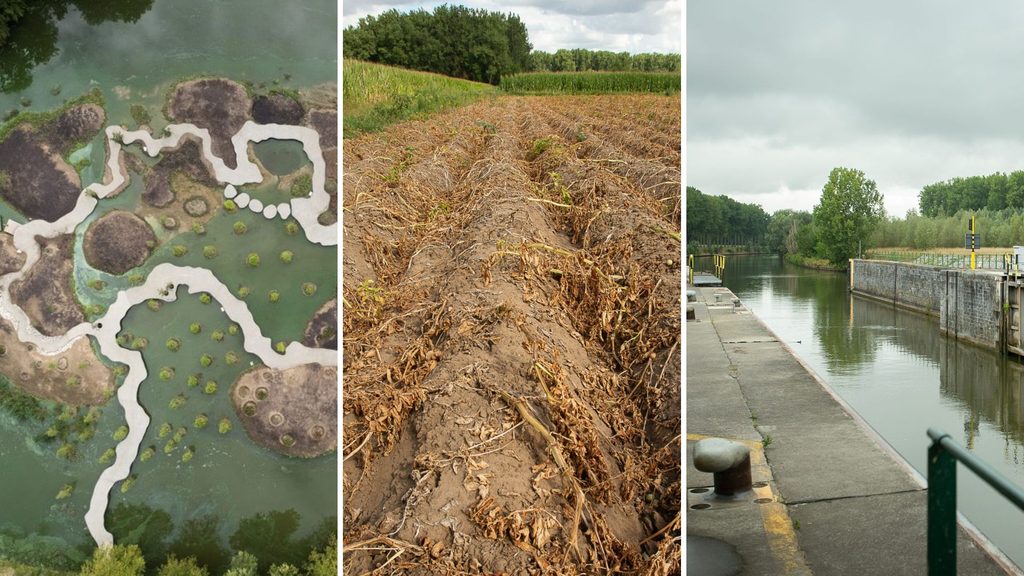Yesterday's brief dealt with the fundamental difference between the climate and the economy which, under current conditions, demands that we attend to one to the detriment of the other. The paradox of protecting ecosystems whilst simultaneously growing economies is driving species to extinction and putting mankind itself in peril.
But modern attitudes seem predisposed to view nature through an unnatural lens. This leads us to simplistic and synthetic interpretations of more complex developments difficult to grasp on the timeframes we normally apply to events.
Many times in the past weeks I've tried to face the relentless rain with a brighter outlook: nature better be lapping this up, or sentiments to that effect. Such is the inclination to impose a human sense of (in)justice on weather systems beyond man's control.
And although latest groundwater measurements in Belgium do show that aquifers are now saturated like a swollen sponge, we would be mistaken to think of water levels like a credit fund that can be overdrawn and topped up through judicious use. The real health of Belgium's earth depends on much more than an unusually damp month.
Whilst individual nations have next to no sway over atmospheric conditions, minute attention to land management at the local level is essential to avert crises such as that seen two years ago.
For a country with as little wild space as Belgium, this point calls for particular oversight. How we farm and treat the soil itself has an immediate impact on the longevity of farming activities and communities across the country. Though we can't make it rain, we can make sure that every drop counts.
Belgium in Brief is a free daily roundup of the top stories to get you through your coffee break conversations. To receive it straight to your inbox every day, sign up below:
1. Replenishing the earth: Belgium's groundwater levels rise significantly
While the cold, rainy weather did little good for those hoping to enjoy a Belgian summer, the environmental benefits have been significant, with groundwater levels rising and record values for soil saturation. Read more.
2. 'Completely irrational': Majority of flights at Antwerp's airport are domestic
Deurne airport in Antwerp has come under severe criticism following revelations that the majority of flights to and from the airport are connecting to Belgian destinations. Read more.
3. Brussels wants to revive medieval Porte de Hal tower with new café or hotel
A project call has been launched to enhance the monument's appeal, but there are concerns this could lead to commercial exploitation. Read more.
4. Not loving it: Locals furious over McDonald's planned new restaurant in Tervuren
Fast food giant McDonald's has been awarded an environmental permit to open a restaurant in Tervuren, triggering a fierce backlash from local residents who fear an increase in congestion and childhood obesity in the Flemish town. Read more.
5. 'Belgium no longer scares criminals': Bouchez weighs in on police debate
French-speaking liberal party Mouvement Réformateur (MR) places the blame of crime in Belgium on the "inefficiency" of its judicial system, rather than a lack of police resources. Read more.
6. Belgium leads the way in rare earth metals recycling
Belgium is a European leader in recycling, one of the few nations to meet recycling targets set out by the EU. Other than household and commercial waste, Belgian recycling plants are now helping to reduce Europe’s dependence on foreign minerals. Read more.
7. Hidden Belgium: The Meyboom
Every year on August 9, locals dressed in uniforms gather in a Brussels back street near the Comic Book Museum to commemorate a battle fought back in 1311, when Brussels defeated its old enemy Leuven. Read more.


